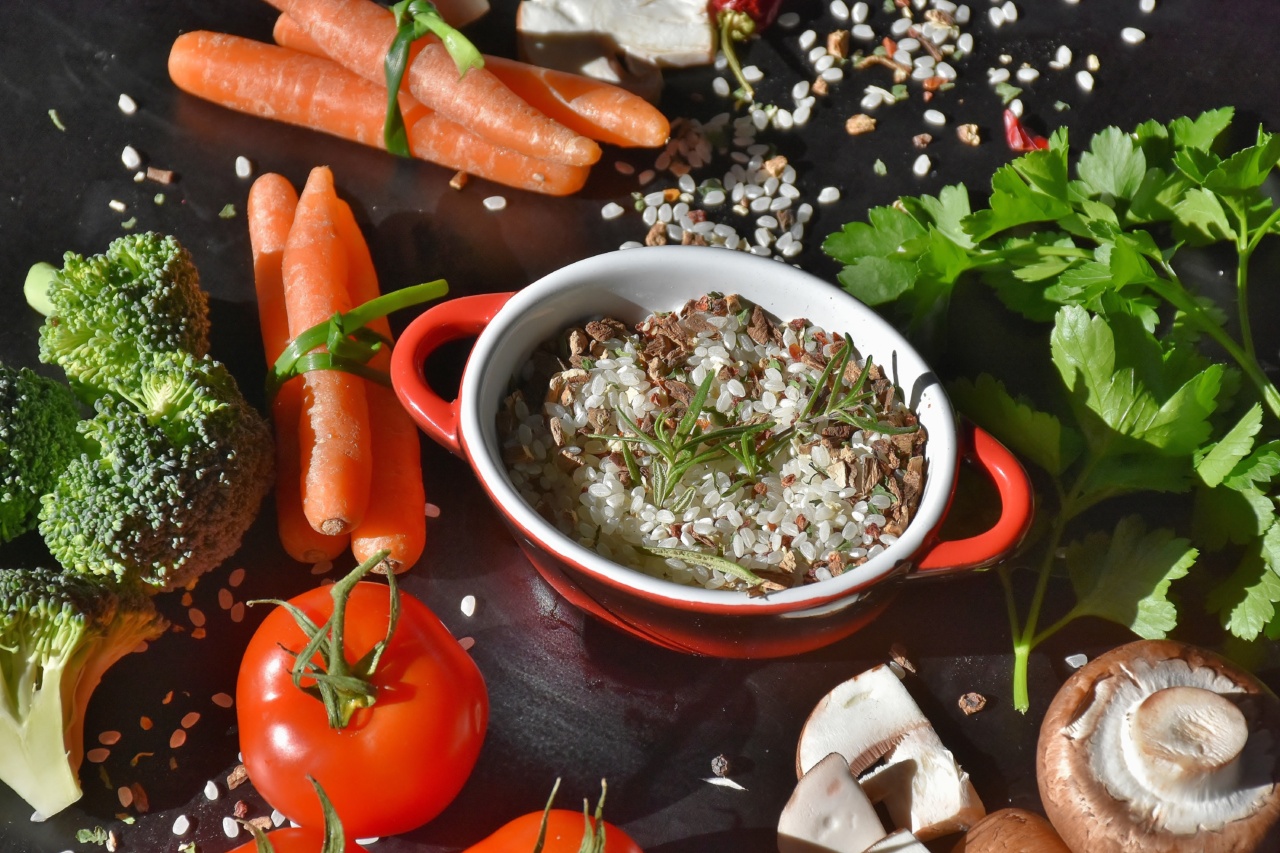Tomatoes are a popular ingredient in various cuisines around the world. They are not only delicious but also packed with numerous health benefits.
However, when it comes to consuming tomatoes, there is often a debate regarding whether they should be cooked or eaten raw. In this article, we will explore the advantages and disadvantages of both options, helping you decide which approach is best for you.
Benefits of Eating Tomatoes Raw
Eating tomatoes raw offers several benefits due to their high nutritional content. Here are some reasons why you might consider consuming tomatoes in their raw form:.
1. Rich in Antioxidants
Tomatoes are a fantastic source of antioxidants, including vitamin C, lycopene, beta-carotene, and more. Consuming them raw ensures that these antioxidants remain intact, offering maximum health benefits.
Antioxidants help fight free radicals that can cause cell damage and contribute to various health issues, including cancer.
2. Better Vitamin Retention
Cooking tomatoes can lead to a loss of water-soluble vitamins, such as vitamin C and vitamin B complex. Since these vitamins are heat-sensitive, consuming raw tomatoes ensures that you obtain a higher amount of these essential nutrients.
3. Improved Digestion
Raw tomatoes are rich in dietary fiber, which aids in digestion and promotes regular bowel movements. Fiber adds bulk to the stool, preventing constipation and promoting a healthy digestive system.
4. Lower Calorie Count
If you are watching your calorie intake, raw tomatoes are an excellent choice. They have a lower calorie count compared to cooked tomatoes. This makes them a great option for salads, sandwiches, or light snacks.
5. Fresh and Refreshing
Raw tomatoes have a crisp texture and a juicy taste, making them a refreshing addition to meals, especially during hot summer months. The natural acidity and vibrant flavors of raw tomatoes can enhance the taste of various dishes.
Disadvantages of Eating Tomatoes Raw
While there are numerous benefits to consuming raw tomatoes, there are also a few downsides to consider:.
1. Difficulty in Absorbing Nutrients
Raw tomatoes contain a compound called phytic acid, which can hinder the absorption of essential minerals like iron, calcium, and zinc. Cooking tomatoes can help break down this compound, allowing for better nutrient absorption.
2. Potential for Digestive Discomfort
Some individuals may experience digestive discomfort, such as bloating or gas, when consuming raw tomatoes. Cooking tomatoes can help reduce these side effects as it breaks down certain components that may be difficult to digest.
Benefits of Cooking Tomatoes
Cooking tomatoes offers its own set of advantages, making it a preferred choice for many. Let’s explore the benefits of cooking tomatoes:.
1. Increased Antioxidant Bioavailability
Cooking tomatoes helps to release and enhance the bioavailability of certain antioxidants, including lycopene. Heat breaks down the cell walls, making it easier for the body to absorb and utilize these beneficial compounds.
2. Enhanced Nutrient Absorption
Cooking tomatoes aids in the breakdown of phytic acid, making it easier for the body to absorb essential minerals like iron, calcium, and zinc.
This can be particularly beneficial for individuals with nutrient deficiencies or those following a plant-based diet.
3. Reduced Risk of Foodborne Illnesses
Cooking tomatoes kills harmful bacteria, reducing the risk of foodborne illnesses. Raw tomatoes, especially when not sourced from trusted suppliers, can carry pathogens such as Salmonella or E. coli.
4. Versatility in Culinary Applications
Cooked tomatoes offer a whole new range of culinary possibilities. They can be used in various dishes such as soups, stews, sauces, and baked goods. The heat intensifies their flavors and adds depth to the overall dish.
Disadvantages of Cooking Tomatoes
While cooking tomatoes can be beneficial in many ways, it also has a few downsides to consider:.
1. Loss of Vitamin Content
Cooking tomatoes can lead to a loss of certain heat-sensitive vitamins, such as vitamin C and vitamin B complex. To minimize nutrient loss, it is recommended to use quick cooking methods such as blanching or steaming.
2. Increased Sugar Concentration
During the cooking process, the natural sugars in tomatoes become concentrated. This can be a disadvantage for individuals with diabetes or those following a low-sugar or low-carbohydrate diet.
Conclusion
The decision of whether to cook tomatoes or eat them raw ultimately depends on personal preference and specific dietary needs.
Raw tomatoes retain their natural flavors, antioxidants, and dietary fiber, making them an excellent choice for those seeking maximum nutritional benefits. On the other hand, cooking tomatoes can enhance the bioavailability of certain antioxidants, aid in nutrient absorption, and open up a world of culinary possibilities.
Regardless of your choice, incorporating tomatoes into your diet is a great way to enjoy their numerous health benefits.





























